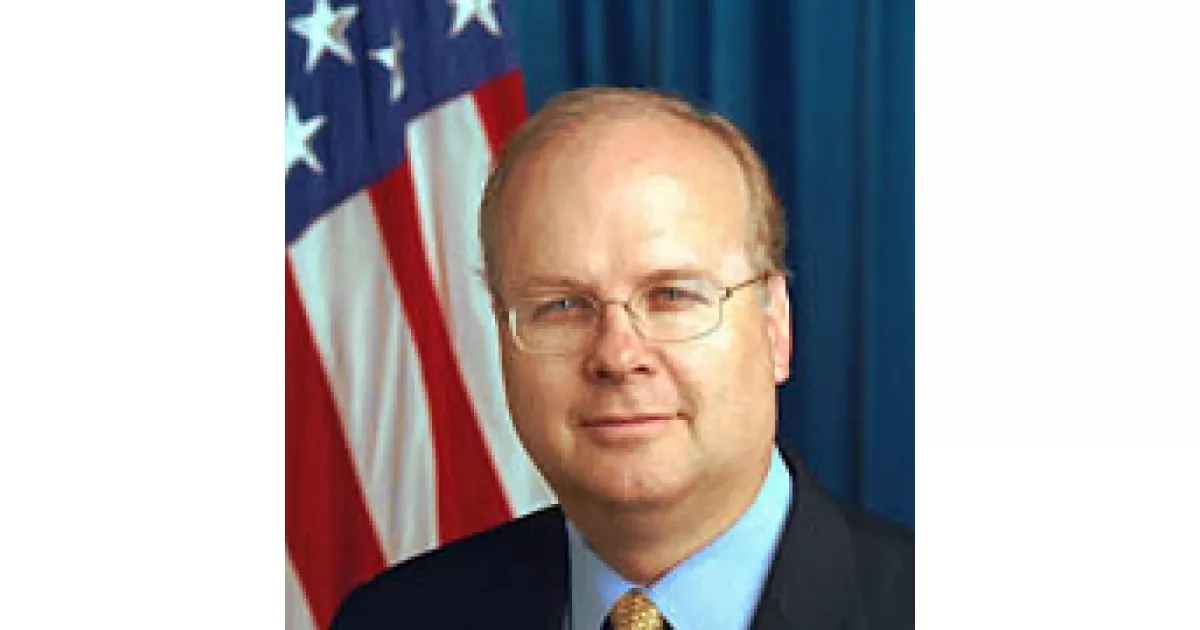Public opinion and media debates around Karl Rove—discover key moments of controversy.
Karl Rove is an American Republican political consultant, policy advisor, and lobbyist notable for his influential role in Republican politics. He served as Senior Advisor and Deputy Chief of Staff during George W. Bush's presidency until 2007. Rove also directed key White House offices, including Political Affairs and Strategic Initiatives. He is recognized as one of the architects of the Iraq War due to his influential role in the Bush administration's decision-making process.
July 1972: Atwater heard anecdote similar to one described in the Washington Post.
In July 1972, Atwater said he had heard a similar anecdote to the one described in The Washington Post during a coffee break. The anecdote was related to alleged unethical tactics being taught to young republicans
August 10, 1973: "GOP Party Probes Official as Teacher of Tricks" article in The Washington Post
On August 10, 1973, during the Watergate scandal, The Washington Post published an article titled "GOP Party Probes Official as Teacher of Tricks", based on recordings of training seminars where Rove's co-presenter cautioned against unethical tactics. The recordings were made by someone hoping for an appointment from Rove's competitor in the CRNC chairmanship race.
August 13, 1973: Atwater Signs Affidavit Regarding Rove's Seminar
On August 13, 1973, Lee Atwater signed an affidavit stating he had heard a similar anecdote to the one described in The Washington Post during a coffee break in July 1972.
1986: Office Bugging Controversy
In 1986, just before a crucial debate in the campaign, Rove claimed that his office had been bugged by Democrats. The police and FBI investigated and discovered that the bug's battery was so small that it needed to be changed every few hours, and the investigation was dropped. Critics suspected Rove had bugged his own office.
1990: FBI Investigation Charge
In 1990, Rove was charged with asking the Federal Bureau of Investigation (FBI) to investigate major Democratic officeholders in Texas.
1991: Sued Thornburgh for Non-Payment
In 1991, Rove sued Dick Thornburgh for non-payment for services rendered during the Senate campaign. Despite pressure from the RNC and an amicus brief written by Kenneth Starr, Rove prevailed in court.
1992: Fired from Bush Presidential Campaign
In 1992, Rove was fired from the Bush presidential campaign for allegedly leaking a negative story to Robert Novak about campaign fundraising chief Robert Mosbacher Jr. Rove apparently confirmed his involvement with Novak during testimony before the CIA leak grand jury.
1996: Severing ties with Philip Morris
In 1996, Rove severed his consulting tie with Philip Morris due to feeling awkward about balancing his role as Bush's top political advisor while Bush was governor of Texas and Texas was suing the tobacco industry.
August 2002: Establishment of White House Iraq Group
In August 2002, The White House Iraq Group (WHIG) was established, eight months prior to the 2003 invasion of Iraq.
August 29, 2003: Rove Accused of Leaking Valerie Plame's Identity
On August 29, 2003, retired ambassador Joseph C. Wilson IV claimed that Karl Rove leaked the identity of Wilson's wife, Valerie Plame, a CIA employee, as retaliation for Wilson's criticism of the Bush administration's use of the yellowcake documents in the lead-up to the Iraq War.
2003: Role in the Lead-Up to the Iraq War
In 2002 and 2003, Rove chaired meetings of the White House Iraq Group (WHIG), developing a strategy to publicize the White House's assertion that Saddam Hussein posed a threat to the United States.
2003: McClellan Claims Untruths About Rove's Involvement in Plame Affair
In 2003, Scott McClellan made statements about Karl Rove's lack of involvement in the Valerie Plame affair. These statements were later claimed to be untrue.
2003: CIA Leak Scandal
In 2003, the CIA Leak scandal started when Valerie Plame, a CIA operative, was outed. This led to legal issues for Karl Rove and other members of the Bush administration.
January 2004: Subpoena for WHIG Records
In January 2004, a subpoena for the White House Iraq Group's (WHIG) notes, email, and attendance records was issued by CIA leak investigator Patrick Fitzgerald.
June 13, 2006: Prosecutors Clear Rove in Plame Affair
On June 13, 2006, prosecutors announced that they would not charge Karl Rove with any wrongdoing in the Valerie Plame affair. Special Counsel Patrick Fitzgerald indicated that the investigation was largely concluded.
July 13, 2006: Plame Sues Rove, Cheney, and Libby
On July 13, 2006, Valerie Plame sued Dick Cheney, Karl Rove, Lewis Libby, and others, accusing them of conspiring to destroy her career after her identity as a CIA agent was leaked.
August 2006: Armitage Revealed as Source of Plame Leak; Libby Charged
In August 2006, Richard L. Armitage was identified as the source of the Valerie Plame leak. The investigation resulted in felony charges against Lewis "Scooter" Libby for perjury and obstruction of justice.
2006: Dismissal of U.S. attorneys
In 2006, Rove was involved in the dismissal of nine U.S. attorneys, which led to investigation.
May 2, 2007: Senate Committee Subpoenas Email Related to Attorney Dismissals
On May 2, 2007, the Senate Judiciary Committee issued a subpoena to Attorney General Gonzales demanding all emails from Karl Rove regarding the dismissal of U.S. attorneys controversy. The subpoena also requested emails related to the Valerie Plame controversy and the 2003 CIA leak scandal.
March 9, 2008: Rove Speaks at University of Iowa Amid Protests
On March 9, 2008, Karl Rove appeared as a paid speaker at the University of Iowa. He was met with hostility and two students were removed for attempting a citizen's arrest.
May 22, 2008: Rove Subpoenaed to Testify on Justice Department Politicization
On May 22, 2008, Karl Rove was subpoenaed by House Judiciary Committee Chairman John Conyers to testify about the politicization of the Department of Justice.
June 24, 2008: Rove Criticizes Obama
On June 24, 2008, Karl Rove made disparaging comments about Barack Obama, describing him with a negative stereotype.
2008: McClellan's Book Alleges Rove's Involvement in Plame Affair
In 2008, former Bush press secretary Scott McClellan claimed in his book, What Happened: Inside the Bush White House and Washington's Culture of Deception by Public Affairs Books, that the statements he made in 2003 about Karl Rove's lack of involvement in the Valerie Plame affair were untrue.
February 23, 2009: Rove Fails to Appear for Congressional Testimony
On February 23, 2009, Karl Rove was required by congressional subpoena to testify before the House Judiciary Committee regarding the dismissal of seven U.S. attorneys and the political prosecution of Don Siegelman, but he did not appear on that date.
July 30, 2009: Rove Testifies Before House Judiciary Committee
On July 30, 2009, Karl Rove testified before the House Judiciary Committee regarding the dismissal of seven U.S. attorneys under the Bush administration and the prosecution of Don Siegelman. The Committee concluded that Rove had played a significant role in the Attorney firings.
September 2009: Rove Inducted into Scandinavian-American Hall of Fame
In September 2009, Karl Rove was inducted into the Scandinavian-American Hall of Fame. The induction sparked controversy due to political views and his ongoing investigation by Democrats in Congress regarding the 2006 dismissal of nine U.S. attorneys.
November 6, 2012: Rove Protests Fox News' Election Call
On November 6, 2012, Karl Rove contested Fox News' call of the 2012 presidential election for Barack Obama, leading to a tense exchange with Megyn Kelly.
2013: Rove Creates Conservative Victory Project
In 2013, Karl Rove and American Crossroads created the Conservative Victory Project to support electable conservative candidates. This effort drew criticism from within the Tea Party movement.
2015: Defending the Decision to Invade Iraq
In 2015, Rove defended the decision to invade Iraq, stating that Saddam Hussein was a threat to the United States, to an Iraq War veteran.
May 2020: Rove Accuses Obama of Political 'Drive By Shooting'
In May 2020, Karl Rove accused former president Barack Obama of engaging in a "political drive by shooting" after Obama criticized the federal government's response to the coronavirus pandemic.
2021: Rove Guest Professor at University of Texas at Austin
In the fall semester of 2021, Karl Rove worked as a guest professor at the University of Texas at Austin teaching a course for UT's Plan II Honors department called Modern American Political Campaigns. Rove invited guest speakers for the students to interview and the class was protested by students.
Mentioned in this timeline

Barack Obama the th U S President - was the...
Fox News Channel FNC is a conservative American news and...

George W Bush the rd U S President - is...
The United States of America is a federal republic located...

Joe Biden is an American politician who served as the...

The White House located at Pennsylvania Avenue NW in Washington...
Trending

38 minutes ago Warriors face play-in, Curry's injury raises concerns, Kerr lowers expectations, Moody's role?
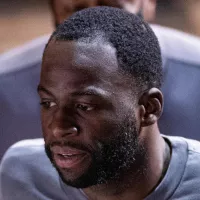
38 minutes ago Stephen A. Smith criticizes Draymond Green's comments on Nico Harrison as unfair.

39 minutes ago Kris Dunn Recovered From Injury, Briefly Exited Game After Elbow Contact
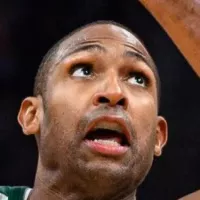
39 minutes ago Al Horford's Role Shifts: Back to Starting Lineup, Then Bench, Mindset Revealed.
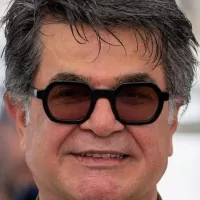
2 hours ago Jafar Panahi faces restrictions, continues filmmaking despite adversity and imprisonment in Iran.
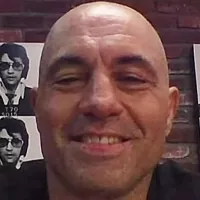
2 hours ago Joe Rogan Interviews RFK Jr. on Trump's ICE Raids and US Taxpayer Losses.
Popular

Jesse Jackson is an American civil rights activist politician and...

Hillary Diane Rodham Clinton is a prominent American politician lawyer...

Jim Carrey is a Canadian-American actor and comedian celebrated for...

XXXTentacion born Jahseh Dwayne Ricardo Onfroy was a controversial yet...

Michael Joseph Jackson the King of Pop was a highly...

Kashyap Pramod Patel is an American lawyer who became the...
